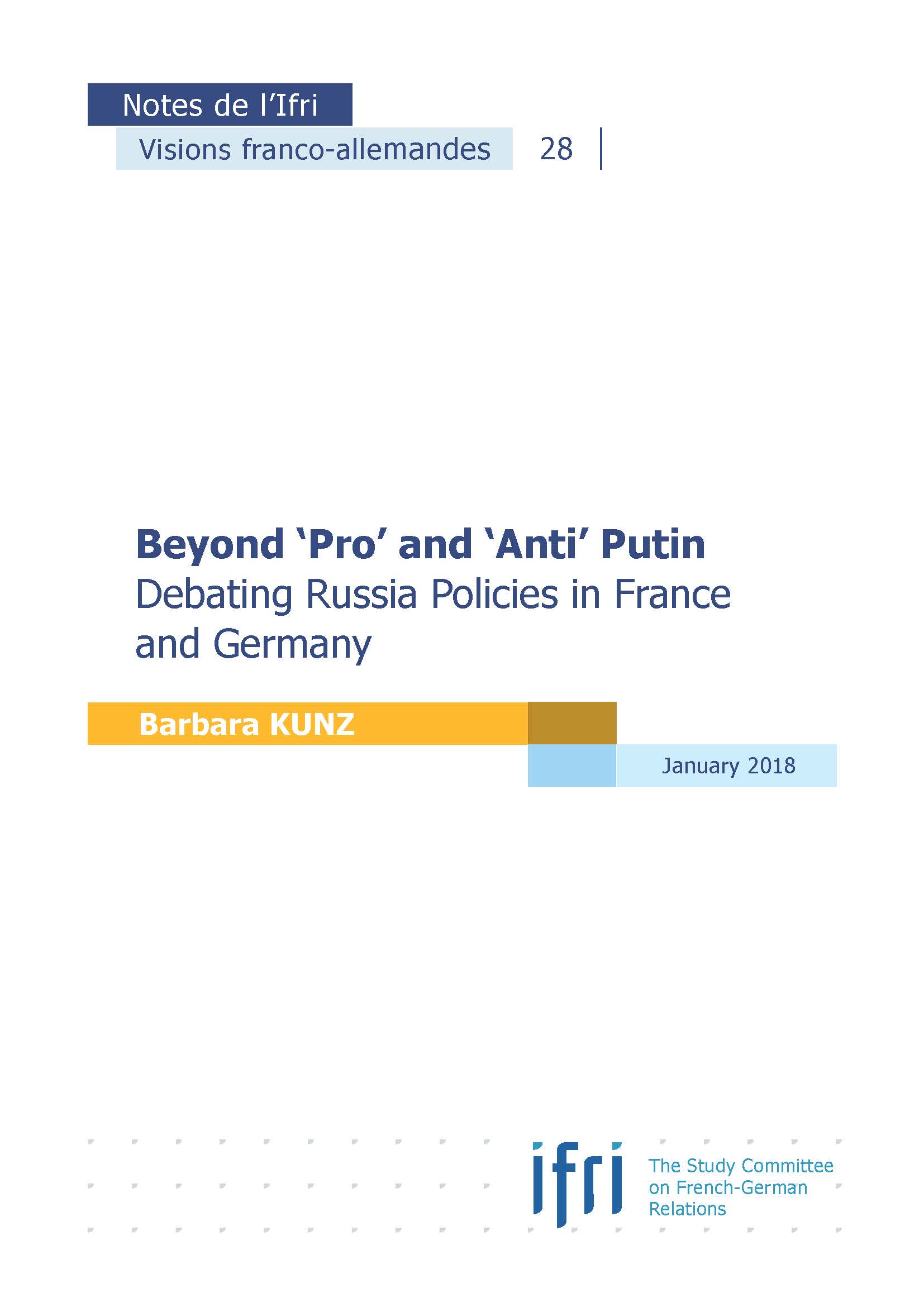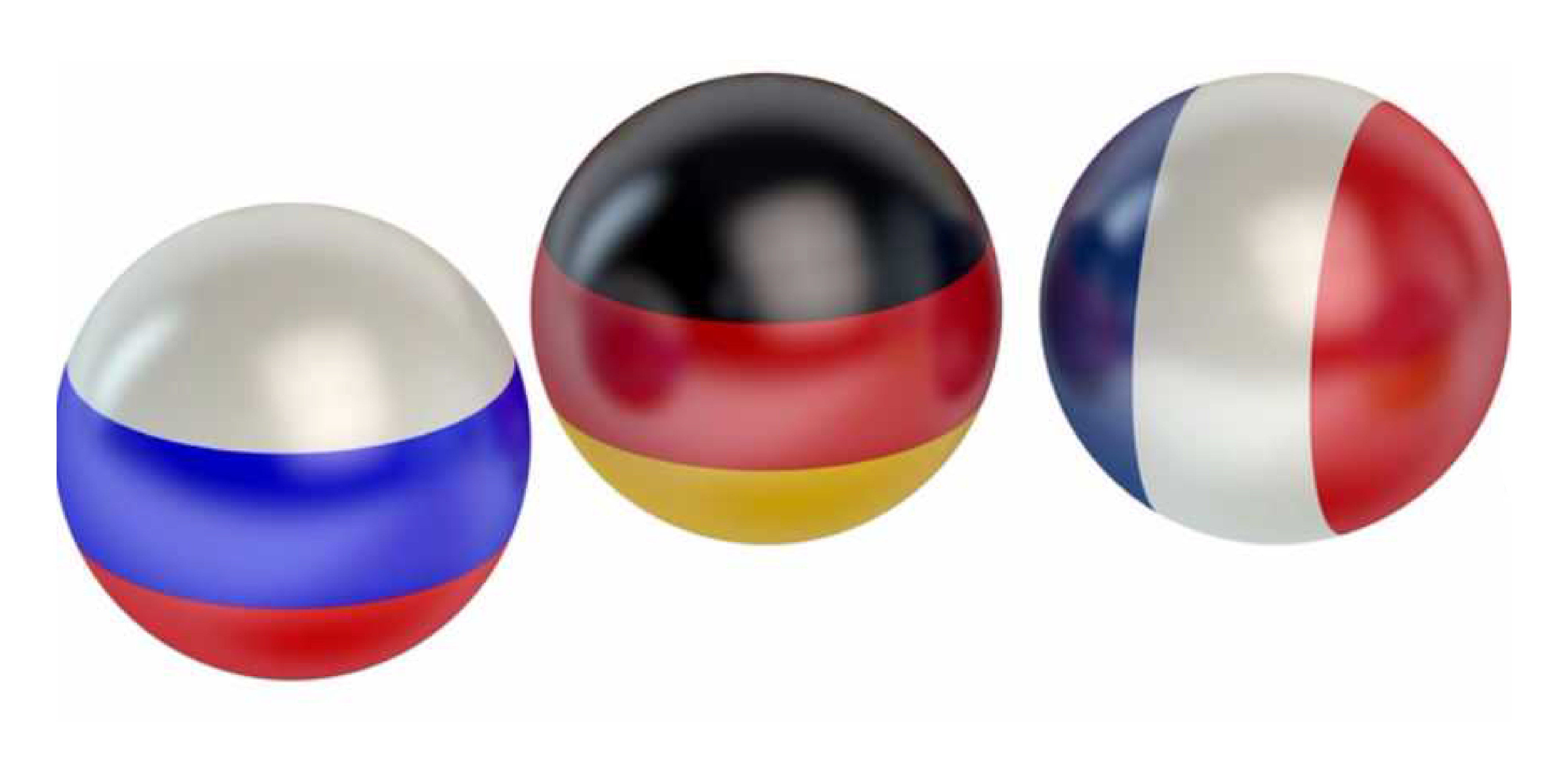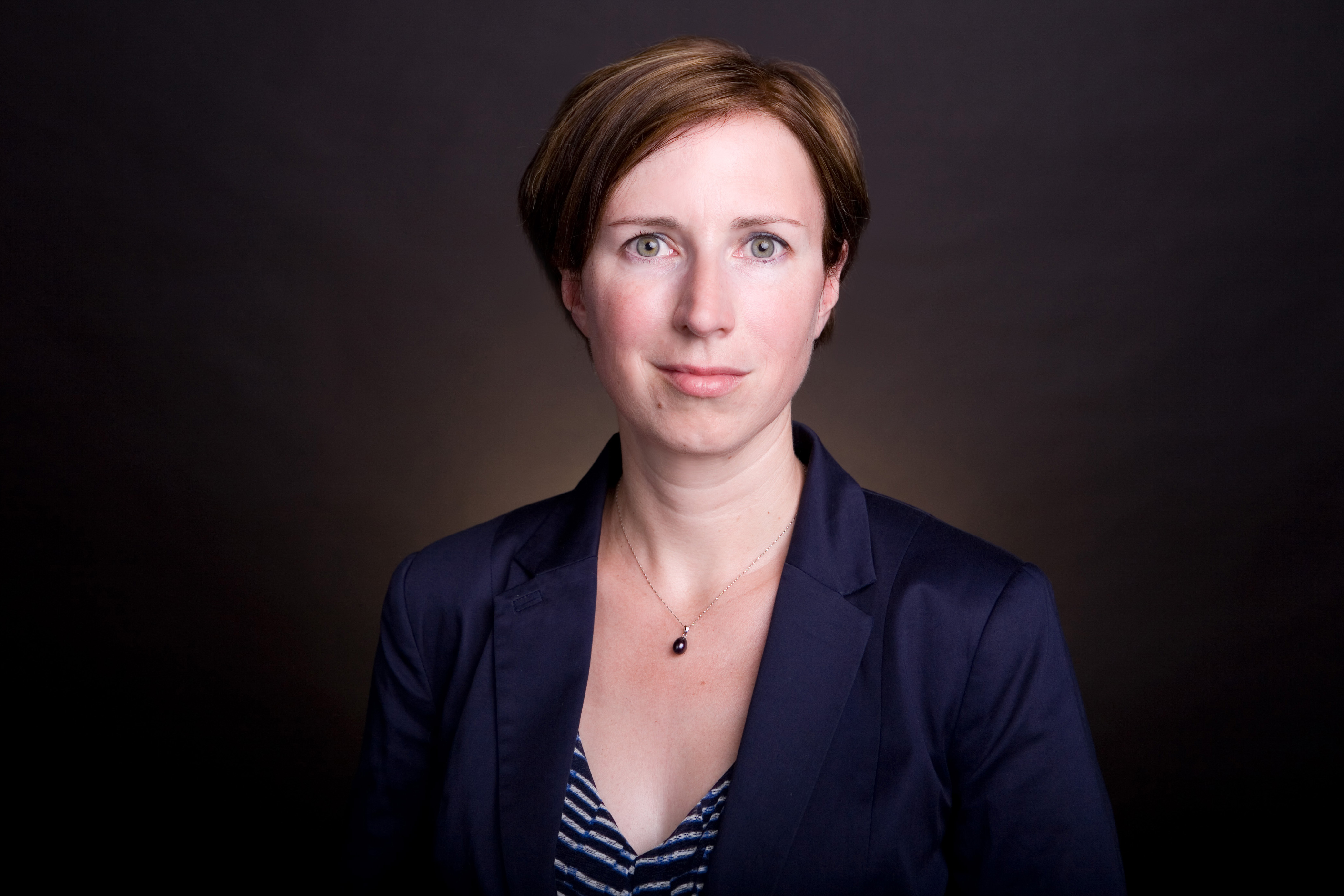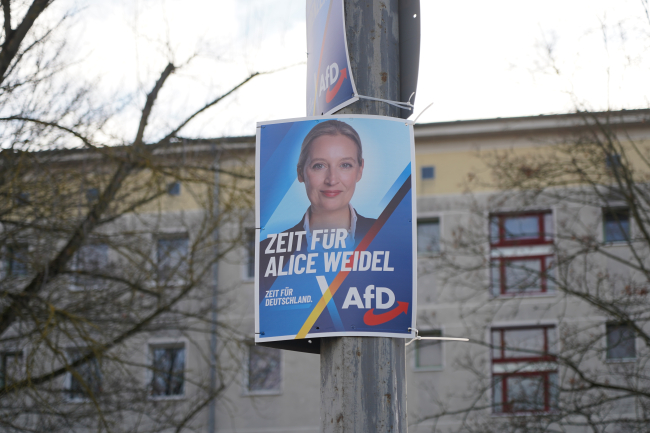Beyond ‘pro’ and ‘anti’ Putin: Debating Russia Policies in France and Germany

Attitudes vis-à-vis Russia expressed in the public sphere are heterogeneous, in France more so than in Germany. In both France and Germany, the general public is by and large skeptical of Vladimir Putin and his policies. The picture is more diverse in the political realm. In Germany, there (still) is an approach that might be qualified as “mainstream”. The French debate, in turn, is highly fragmented.

In light of the two countries’ recent electoral campaigns, this study addresses the public debate in France and Germany regarding a number of key issues. It presents both dominant discourses, as well as those challenging them. The study thus offers insights into national debates generally unavailable to readers unfamiliar with the respective country’s political playgrounds or without the necessary language skills.
Overall, foreign-policy discourses seem to be drifting apart in France and Germany. The German political establishment continues to emphasize multilateralism and a rules-based international order. In France, the 2017 presidential campaign has shown considerable differences between – and sometimes even within – political parties. These differences continue to exist, and are even likely to deepen. This development’s consequences for Franco-German dialog thus go beyond the question of how to deal with Russia.
Barbara Kunz, Research Fellow at the Study Committee on French-German Relations (Cerfa), Institut Français de Relations Internationales (Ifri), Paris.
Download the full analysis
This page contains only a summary of our work. If you would like to have access to all the information from our research on the subject, you can download the full version in PDF format.
Beyond ‘pro’ and ‘anti’ Putin: Debating Russia Policies in France and Germany
Related centers and programs
Discover our other research centers and programsFind out more
Discover all our analysesFriedrich Merz and the Zeitenwende 2.0. A “New Era” for Transatlantic Relations?
On February 23, 2025, almost 60 million voters were called upon to elect a new Bundestag. These elections will also give rise to a new government in Europe's largest economy.
After the Elections: Germany in Search of Shaken Stability?
With a voter turnout of 82.5%, Germany recorded its highest participation since 1987—an increase of 6.1 percentage points compared to 2021. As in the previous election, the high turnout particularly benefited the Alternative for Germany (AfD), which was able to mobilize many former non-voters. Many voters sought to punish the outgoing government with their ballots, as its approval rating had dropped to just 14% before the coalition broke apart in November 2024. Germany is now very likely heading toward a grand coalition between the CDU/CSU and the SPD, with exploratory talks having begun on February 28.
The German Greens as an Alliance Party: The End of an Illusion?
At the Wiesbaden Congress in November 2024, Robert Habeck, currently Minister for the Economy and Climate, was nominated as the Green Party’s candidate for the Chancellorship in the early parliamentary elections on February 23, 2025. The party, founded 45 years ago, is now firmly established in the German political landscape. Wishing to turn the page on an unloved ‘‘traffic light’’ coalition, the party is banking on a personal campaign and an optimistic discourse based on the energy transition and social justice.
The rise of the AfD and the choice of radicalism
Founded in 2013, the Alternative für Deutschland (AfD) has become increasingly radical as crises have unfolded. Since 2015-2016 and the massive influx of immigrants into Germany, it has positioned itself as a virulently anti-migrant party and continues to consolidate its foothold in the German political system, particularly in parliaments. While its roots are very strong in the eastern regions, where its main strongholds are located, it is also attracting more and more voters in the west, against an overall backdrop of normalization of the far right and a national context marked by strong economic and political destabilization.













